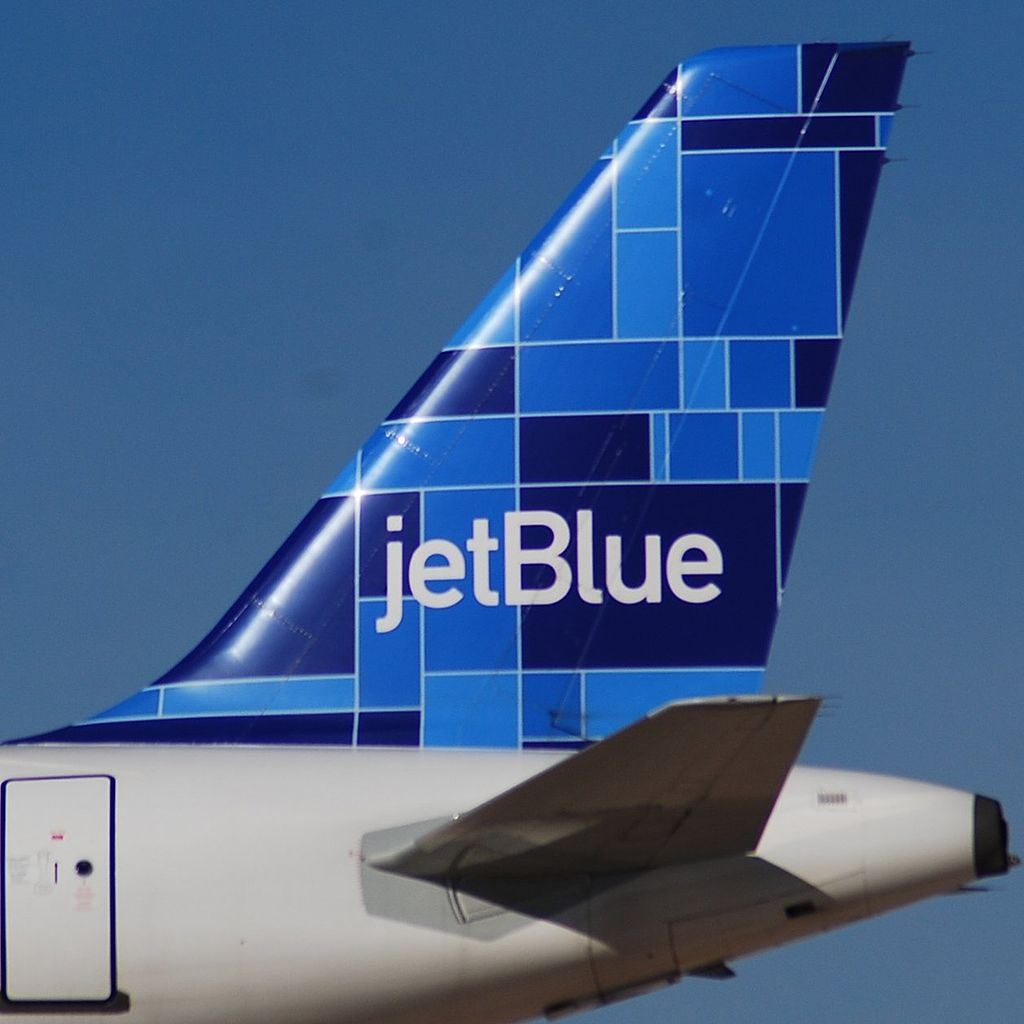Transportation
If Sprint-T-Mobile Merger Is Approved, These 2 Companies May Be Acquired Next

Published:
Last Updated:

For those who have watched the movie Groundhog’s Day, the on-again, off-again potential marriage of Sprint Inc. (NYSE: S) and T-Mobile US Inc. (NASDAQ: TMUS) is once more in full view. While most on Wall Street still think the odds of approval are slim, the chances may be better this time around.
In a fascinating research note, Stifel makes the case that if approval for the telecom deal does indeed happen, it could be a total game changer for an entirely different sector: transportation — specifically the airlines. The analysts noted this in the report:
We see the Sprint – T-Mobile merger announcement and approval process as the first major test of the Trump administration’s view on consolidation, and one that could be particularly relevant for the airline industry. In our view, the airline industry is one that wants to consolidate further but views the likelihood of Department of Justice approval as low so has largely written off the idea in recent years.
The analysts feel that if the deal is approved the big carriers, specifically American, Delta, Southwest and United, would be very interested in two of the smaller carriers that have a big presence on the east and west coast of the United States. The question is who looks to be in the best position to make those purchases, because both will be very expensive, and as the United Continental deal showed some years ago, integration is often much easier said than done.
Here are the two airlines that the Stifel analysts would be big-time targets if the Sprint-T-Mobile deal is approved, and a path for consolidation looks more promising.
This company has a big west coast exposure and continues to rank high on Wall Street. Alaska Air Group Inc. (NYSE: ALK) is the parent company of Alaska Airlines, and it reported impressive traffic data buoyed by strong demand. The company serves more than 100 cities through an expansive network in Alaska, the Lower 48 states, Hawaii, Canada and Mexico. Despite recent challenges by other carriers for superiority in the Northwest, the company has strong customer loyalty, which has contributed to outstanding earnings and revenue growth.
The company reported solid operational results in February, though revenue per available seat is expected to be down some for the quarter. Most on Wall Street remain extremely bullish on the shares.
Stifel feels that this company could be a huge target, given the big footprint on the west coast and with routes to Alaska and Hawaii. The report said this:
Southwest could easily pay a 100% takeout premium for Alaska and stay right around 3 times net debt to EBITDAR, or earnings before interest, taxes, depreciation, amortization and rent/restructuring costs, is the same calculation as EBITDA, with the exception that rents and/or restructuring costs are excluded from the expenses. $21 billion in total net debt to $6.5 billion in EBITDAR. Delta would also be a serious bidder but would struggle to outbid Southwest as a 100% premium would take Delta’s leverage closer to 4 times net debt to EBITDAR. We believe the current consensus in the industry is that Alaska will serve as buyer and consolidator within its segment of the market – which would include itself JetBlue and Hawaiian Airlines.
Shareholders receive a 2.04% dividend. Stifel has a Buy rating and a $100 price target on the shares. The Wall Street consensus target is $80.93. Shares traded early Friday at $62.55.
This stock was hit in March and still is trading near 52-week lows. JetBlue Airways Corp. (NASDAQ: JBLU) is a point-to-point airline that operates out of its headquarters in New York, as well as Boston, Fort Lauderdale/Hollywood, Los Angeles (Long Beach), Orlando and San Juan. JetBlue carries more than 32 million customers a year to 87 cities in the United States, the Caribbean and Latin America with an average of 850 daily flights.
The company has been walloped by storms this winter, and its big east coast presence has resulted in an unusually large number of canceled flights. Despite the weather issues, the company reported an increase in traffic of 6.8% on a capacity increase of 6.8% back in March.
The massive east coast presence makes JetBlue a target. The analyst noted:
A similar dynamic for Alaska would exist for JetBlue where the degree of consolidation would depend on the acquirer. However, in JetBlue’s case, given its concentration in the New York market, any of the Big 4 serving as acquirer would result in an increase in the number of routes with only one airline. Further complicating the analysis is how the three airports in New York would be viewed – as three separate markets or one large market. We view them as three separate markets which skews the results to some degree given JetBlue’s concentration in JFK – an airport heavily served by Delta and far less so by United.
The $21 Stifel price objective accompanies a Hold rating. The consensus target price is $23.87, and shares traded at $19.10 Friday morning.
The Stifel team makes it clear that the tables could always turn and Alaska Airlines could be a buyer as it looks to expand its reach across the United States. The question is who has the balance sheet to add the debt required to make such a deal, and clearly it looks like Southwest may be in the driver’s seat —or pilot’s seat, in that instance.
Thank you for reading! Have some feedback for us?
Contact the 24/7 Wall St. editorial team.